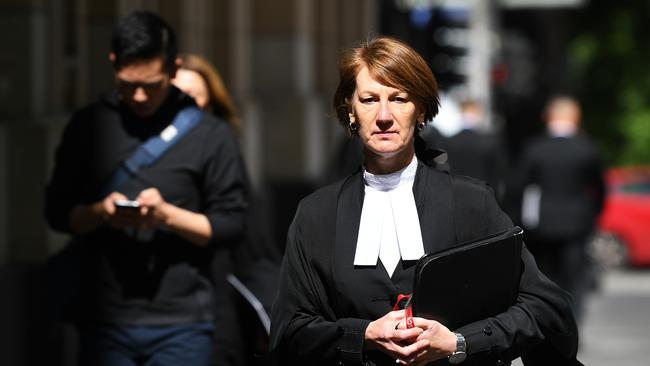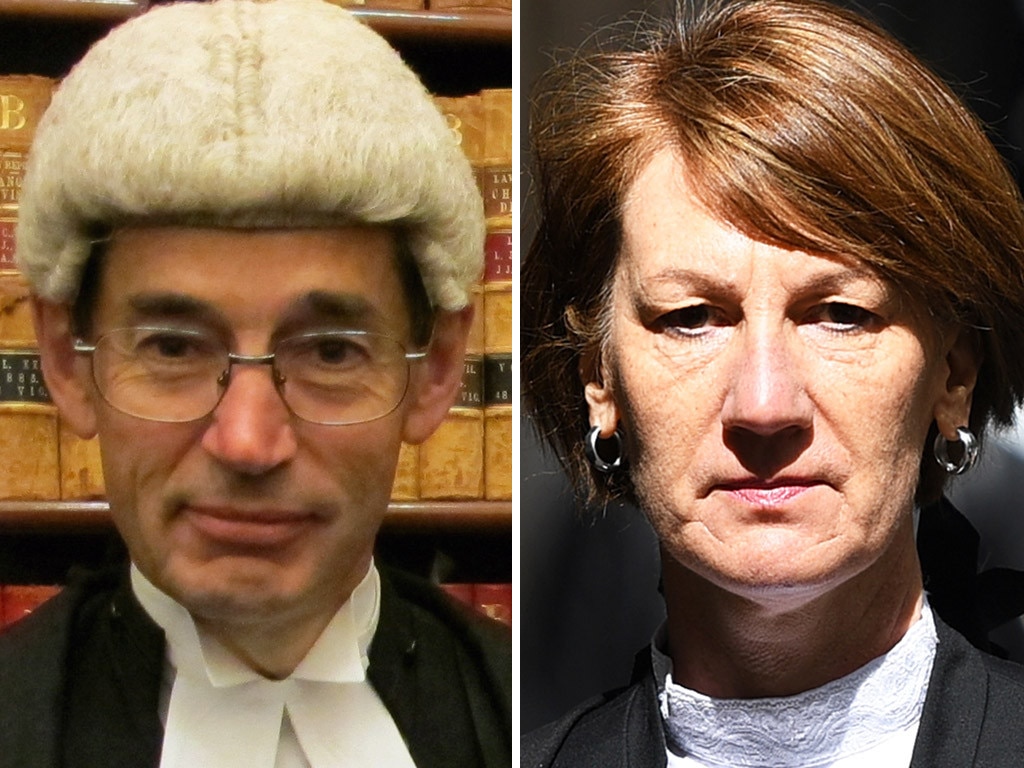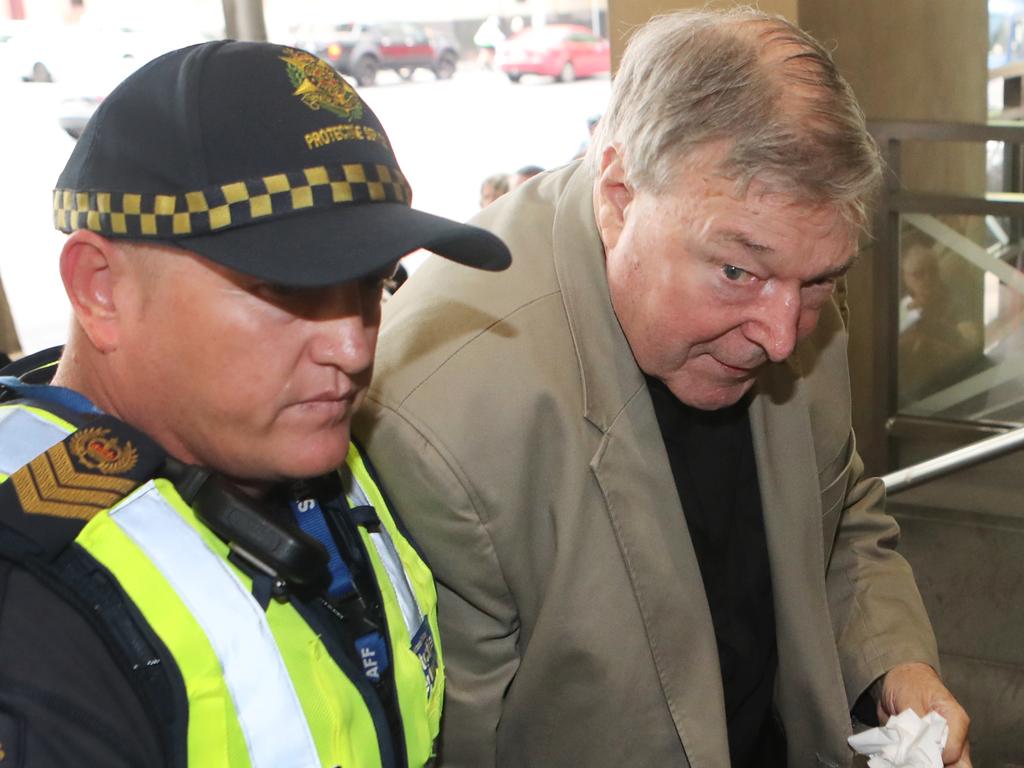‘Justice Judd’ chatter amid war on judges
In the midst of unprecedented tensions between the DPP and judges, lawyers are speculating the top prosecutor may be set to join the Supreme Court.

If Kerri Judd aspires to follow in the footsteps of her prosecutorial predecessors and ascend to the Victorian Supreme Court, she certainly doesn’t seem to care whether the welcome mat is rolled out in her new chambers.
The path from Director of Public Prosecutions to the Supreme Court is well trodden, and the prospect of Judd joining former top prosecutors such as John H. Phillips, John Champion and Paul Coghlan on the bench has been the subject of much speculation in judicial and KC circles in Melbourne.
The chatter about the prospect of “Justice Judd” has been doing the rounds for months but the events of the past fortnight – the emergence of her official complaints against two judges, Lex Lasry of the Supreme Court and Geoff Chettle of the County Court, to the Victorian Judicial Commission – have ignited the legal gossip.
Not content with prevailing in the Victorian Court of Appeal in overturning decisions by the judges to stay criminal charges in separate cases, Judd came after both by calling in the watchdog.
An incensed Lasry, who only found out last month that the DPP had taken action against him 10 months earlier, sensationally quit in open court, saying he “utterly” rejected the complaint.
Chettle, who discovered late last year that the complaint had been lodged six months earlier, remains on the bench and has mounted a vigorous defence.
Some KCs believe former High Court judge Geoffrey Nettle should also be included when considering Judd’s judicial scalps, albeit under very different circumstances.
Nettle was appointed to run the Office of Special Investigator to consider criminal charges against Victoria Police officers and Nicola Gobbo over the Lawyer X scandal. But the OSI wasn’t armed with the power to lay charges and needed Judd to pull the trigger.
Despite Nettle presenting detailed cases he believed warranted prosecution, Judd repeatedly rejected them. Ultimately, Nettle quit and the OSI was disbanded.
Privately, former judges and current barristers describe Judd’s decision to double down on Lasry and Chettle as “troubling” and “vexed”. But this behind-the-scenes alarm is not being played out in public, with legal figures unwilling to ventilate their concerns on the record.
The most pointed public comment about the complaint from the judiciary came from the Australian Judicial Officers Assocation, a national body representing judges, which described the circumstances that triggered Lasry’s resignation as “regrettable and extraordinary”.
One veteran KC summed up the current mood: “We’ve got a DPP’s office who are a pack of dibber-dobbers, and I don’t want to be the subject of the next complaint because it is a f..king distraction.
“Frankly, I’m scared. If I say this is all troubling and out of order, I’ll be dobbed in.”
Lasry learned of Judd’s complaint against him on February 5. On the night of February 13, he tweeted a hint of what was to follow the next day; “And so it ends after 51 years.”
The next day he interrupted a preliminary hearing into a major underworld trial and resigned in what can only be described as sensational circumstances.
“Ladies and gentlemen, I will not be able to continue with any further hearings in this case and will soon be resigning from this court,” the veteran reserve judge told the court.
Lasry told the court Judd’s complaint alleged comments he made in staying criminal charges against a trucking company boss relating to the Eastern Freeway crash that killed four police officers had the “tendency to diminish public confidence in the administration of justice in Victoria”.
Lasry suggested to the court he was particularly concerned he was not informed earlier that the complaint, which he said he “utterly” rejected, had been made.
“I now discover that the DPP through solicitor Abbey Hogan has made a formal complaint about me and the way in which that matter was conducted to the judicial commission,” he said.
He noted that after the complaint had been lodged he had continued to “undertake the criminal work of the court, all of which involved the director, as unbeknownst to me she had become a complainant against me”.
“Whilst it is impossible to know what the judicial commission’s findings might be, now that I know of the director’s allegation, it is clear it is not appropriate for me to continue to preside over any matters involving her as a party,” he said.
The secrecy surrounding the complaints process has been a complicating factor. The only reason the public is aware of this behind-the-scenes stoush is that Lasry resigned in open court and The Australian then revealed Judd’s complaint against Chettle last Tuesday.
Given the confidential nature of the judicial commission process, there has been no public explanation as to why the DPP felt it was necessary to launch the actions.
In finding in favour of the DPP, the Court of Appeal was critical of Lasry on several counts, describing aspects of his ruling as “wrong” and rejecting his decision that the conduct of the prosecution was an abuse of process or oppressive. It did flag some concerns with the prosecution, describing its conduct as possibly “suboptimal and inefficient”.
One KC said there was a widely held view in legal circles that having prevailed in the Court of Appeal on both counts, that’s where the matters should have been left. Or Judd could have taken her concerns to the heads of both courts.

Former chief Crown prosecutor Gavin Silbert KC, who regularly acted as DPP for a decade, was highly critical of Judd’s decision to lodge complaints.
“The (judicial commission) was never designed to afford an avenue of complaint to the director, and the director’s use of the act to complain about the conduct of a serving judge is entirely inappropriate,” Silbert said.
Former Supreme Court judge and IBAC anti-corruption commissioner Robert Redlich was one of the few legal figures who offered a view on the process surrounding the complaints.
“I am unable to comment upon the substance of the director’s complaint or the fairness of the process … as I am not privy to the full circumstances,” he said.
“I can, however, say that it is not unheard of for a trial or appeal judge to inquire of a prosecutor and be informed as to why a particular course has been followed by the DPP as it may be relevant to an issue that falls to be decided by the court.”
Redlich also observed the very existence of a complaint to the commission by the DPP may effectively end the career of a judge.
“The consequence of a complaint made by the DPP concerning a judge, regardless of its merits, may, depending upon the nature and content of the complaint, potentially preclude that judge from conducting any future hearings in which the DPP is a party,” he said, before going on to pay a warm tribute to Lasry.
“Justice Lasry has made an outstanding contribution to the administration of criminal justice over the better part of two decades. He has conducted important and challenging criminal trials with great distinction and is held in the highest esteem by his judicial colleagues and the Victorian Bar.”
This extraordinary stoush between the DPP and sections of the judiciary has no doubt helped fuel the chatter and gossip within legal circles about the likelihood of Judd joining the Supreme Court.
The Weekend Australian asked if the DPP cared to comment on the judicial speculation and whether she aspired to becoming a Supreme Court judge. “The OPP has no comment to make,” a spokesperson said.
One KC said Nettle, Lasry and Chettle commanded widespread support among lawyers and judges for their decades of service. “Nettle can only be described as a legal giant, an absolute legal giant, and a hard worker,” the lawyer said.
“Chettle is a machine, an absolute machine. Lasry is a skilled advocate, fair prosecutor and a most articulate fighter for the underdog … another real worker.
“And the criminal justice system needs hard workers. These days the work is so demanding and unrelenting. Being a judge and presiding over criminal trials is like working in a sweatshop.”
The irony with this episode is that while judges are in the business of presiding over a justice system, the complaints process established to field complaints against them represents an injustice on several fronts.
Firstly, it’s so secret that the judges themselves aren’t informed of a complaint for months, or almost a year in Lasry’s case. Secondly, judicial commission rules dictate that once a judge resigns from court, the complaint must be abandoned, meaning in Lasry’s case he can’t clear his name. Not that this seems to be holding him back from enjoying life.
Lasry’s distinguished career as a judge concluded on Friday night when his resignation took effect. Since resigning on February 14, he’s been on “cycling” leave. This week, he tweeted a photo of himself in his riding gear, with an aptly defiant message splashed across his Lycra top: “Never underestimate an old man with a bicycle.”








To join the conversation, please log in. Don't have an account? Register
Join the conversation, you are commenting as Logout